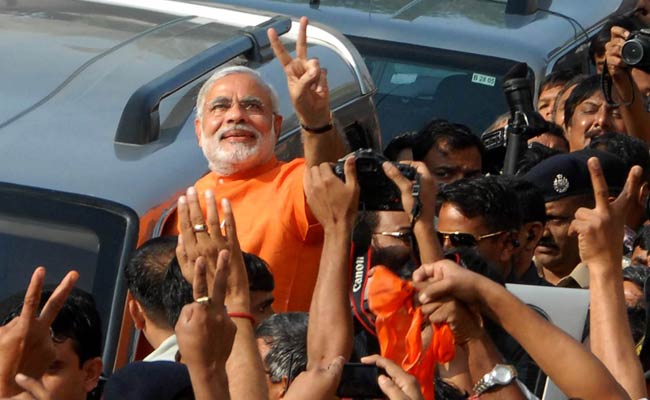The festival of democracy, General Elections 2019, has concluded with the fireworks display of results. Traders of promises — the multiple parties and contestants across the length and breadth of India — have left the fairground with their respective profits and losses. Each is now taking stock of how their wares sold at the election. Superficially, it appears the polls have shown a clear rejection of dynastic politics with scions such as HD Kumaraswamy’s son Nikhil losing from Tumkur, Ashok Gehlot’s son Vaibhav losing from Jodhpur, Jaswant Singh’s son Manvendra losing from Barmer and Murli Deora’s son Milind losing from Mumbai South. Families in politics have been shown the door, cutting across party lines. Prominent leaders like Chandrababu Naidu who were trying to cobble alliances together to rout the ruling dispensation, have themselves been rejected. People voted not for development or stability but for someone whom they perceive, capable of vanquishing their ‘enemy’. Interestingly, like the goalpost for economic reforms constantly changing in India, the ‘enemy’, too, seems to have changed in quick succession. It is left for the people to fill in the blanks as to who shall be the current ‘enemy’ for them. While at one time at the beginning, the enemy was the Moslem, during Demonetisation, the looking glass was pointed at the so-called rich and prosperous who were supposedly hoarders of black money. This had nothing to do with religion. The worker considered her boss to have stashes of black money, the white collared employee thought the Corporate honcho to have illicit wealth, the white collared employee’s driver thought him to be more wealthy and so it started from the poor who disliked the middle class who in turn disliked the rich. These are but a few examples in the process of changing narratives of who the present enemy is. It included, at certain points of time, liberals being abused as libertards, seculars being called sickulars, journalists being labelled presstitutes and people who questioned termed as anti national and so on and so forth. The apex however, was the puny neighbour Pakistan which was used to the fullest, similar to whipping a dead cow, to whip up a frenzy of nationalistic fervour against the ultimate enemy. Lest words confuse our minds, we should not forget that safety of cows, dead or alive, also is of great social concern in India, maybe greater than the safety of women and children. It is said that the issue of talaq could successfully divide the female and male components within the Moslems of India.
The brute majority that has reaffirmed faith in the Ver 2.0 Modi government has seen to it that it cannot now place its inability to get policies past the Parliament at the door of the Opposition. Also, the mandate has weakened the Opposition to a level where their voices will not be heard anymore, which may not be a good omen for democracy.
Both the Lower and Upper Houses of Parliament are now with the ruling combine and they can no longer say the path of reforms they wanted to tread is blocked by wanton opposition.
The government now needs to show that its policies will indeed produce results in real terms for the common man. It is obvious that the pains the citizen suffered as a consequence of decisions taken in the first term will be repeated, albeit under different guises. This is not a mandate for fulfillment of promises. Rather, it is possible people demanding to see tangible proof of development in future will be told to look at the various schemes being implemented. This could imply that economic issues will be pushed to the back-burner. That may not affect the super-rich, but concerns of the middle class and the poor may get diverted to issues of nationalism.
